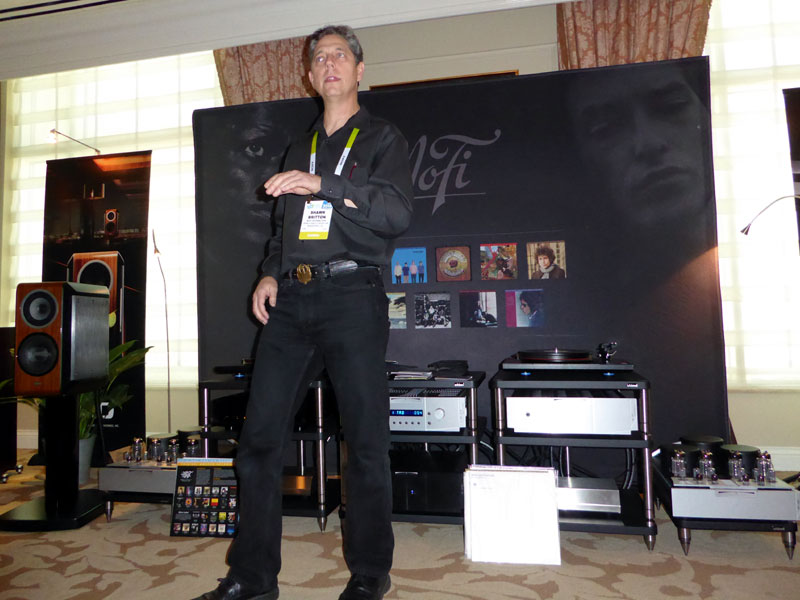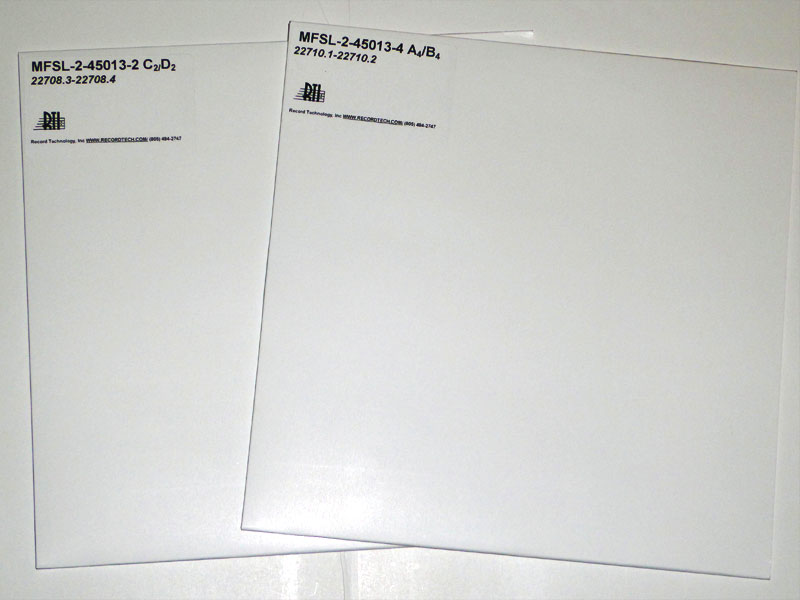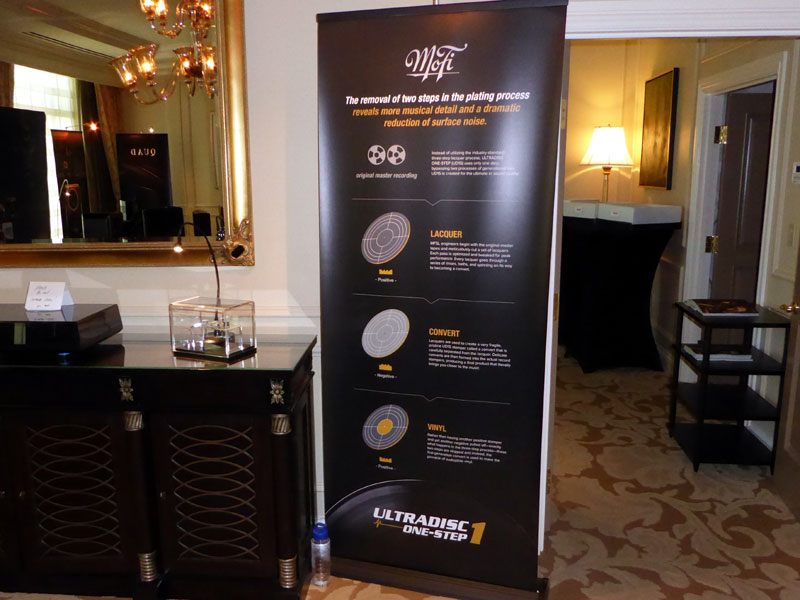CES 2016 • TABlog
eenager Brad Miller founded Mobile Fidelity Sound Labs in the late 1950s, initially releasing an LP of steam-engine sounds that he recorded himself and later albums from his own Mystic Moods Orchestra. The MoFi we know today didn't materialize until the 1980s, when the label began using the novel new approach of half-speed mastering from the actual master tapes, with the goal of creating records that sound better than original pressings.
After the explanation of the process came the proof of its efficacy: playing a 45rpm test pressing of Santana's Abraxas. The overall immediacy, retrieval of fine detail and grip into the bass were impressive -- and convincing of One-Step's potential.
One-Step LPs require more care and labor, so they will be more expensive than standard MoFi reissues. Right now, the plan is that they will be packaged in a way that's similar to Mobile Fidelity's decades-old UHQRs: in deluxe boxes, not typical sleeves. Those single records cost $50 in the 1980s, so it's clear that the pair of 45rpm One-Step pressings, each a limited edition, will cost more than that today. After Mobile Fidelity began using half-speed mastering,
other reissue labels adopted the process. I will be surprised if the same doesn't happen
with One-Step. Its advantages are easy to understand and just as easy to hear. |



